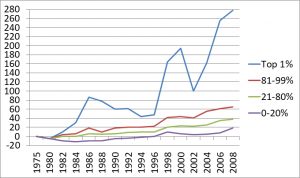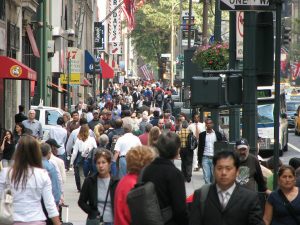Covid, shelter-in, election turmoil, Afghanistan, Brexit, China, impeachments, perhaps these things still are unresolved but at least we’ve had a chance to beat them with sticks and throw stones, pushing them into some kind of partial remission. There is time now to take a quick shower, put on some clean clothes and prepare for the next item in the national job jar: managing money.
News outlets are covering the party debate about Joe Biden’s infrastructure bill; the sport of legislation will be headlines for a while. Slowly emerging into electorate awareness, however, are the issues of government spending, taxes, user fees and inflation. These are the bucking bulls behind the battle over bridges and health care. Some bucking broncos are bank and investment regulations, bitcoin, and climate change just to mention a few money issues. The rodeo clowns still are putting on a show, that is, everything Trump, McConnell, McCarthy and Gaetz but the main events will take over quickly.
The main attraction is inflation. It is devastating to the value of the dollar bill in our wallets. Economists, both political and institutional, see inflation taking off and running because the US government has – or will – dump $6 trillion dollars into the general economy (6 includes Trump’s contribution). An extremely brief description of how inflation works is “If there is so much money around, then you can afford to pay $10 for this hamburger instead of $4.”
The problem is that common citizens don’t receive salary increases commensurate with the rate of inflation. Everything is subject to inflation from toilet paper to homes and automobiles. Mariner experienced the 1970 inflation by having a pleasant salary that over ten years became a meager one that required him to shift careers. During the 70s the Consumer Price Index (how much things cost) went from 37.8 to 76.7, cutting in half what that dollar in the wallet could buy.
The second attraction is taxes and fees. These actions slow the possibility of inflation to a degree. Biden has said no one with an income below $400 thousand will receive a tax increase; he intends for the wealthy to pay for infrastructure and health services instead of spending government debt money. It can’t be denied that very wealthy citizens are sitting on a pile of money that isn’t doing anything for the economy but republicans don’t want to raise taxes at all. Instead, they prefer that government spending be offset by user fees (an attempt to hide the fact that ‘fees’ actually are taxes applied to specific purchases like gasoline, tolls and utility services) – meaning that the general population foots the bill.
The next two issues of extreme financial importance are regulations to restrict banks to what banks are for and to push them back from ventures into Amazon-like partnerships and credit card manipulations; the other issue is automation of finances generally, that is, replacing the dollar in your wallet with the state of an electron in a computer somewhere.
Finally, climate change will impact everything – everything! Whole industries may disappear as well as whole cities. Climate change is like a very, very, very slow hurricane. There is no doubt all the other money issues will be affected.
Put your chaps and spurs on – the legislators will need guidance.
Ancient Mariner

 defies elimination. It still is a killing pest in the lawns but in some garden beds mariner has decided to experiment with Creeping Charlie as the ground cover to keep other weeds out and at the same time add to the décor of the garden. It turns out that Charlie has taken hold of his new job with relish. Not even the dreaded crabgrass can sprout beneath a robust covering of Creeping Charlie. In fact, mariner is saving money because he doesn’t have to buy mulch for those areas.
defies elimination. It still is a killing pest in the lawns but in some garden beds mariner has decided to experiment with Creeping Charlie as the ground cover to keep other weeds out and at the same time add to the décor of the garden. It turns out that Charlie has taken hold of his new job with relish. Not even the dreaded crabgrass can sprout beneath a robust covering of Creeping Charlie. In fact, mariner is saving money because he doesn’t have to buy mulch for those areas. otherwise he has let the mole venture about. Tolerance by the mariner is an experiment to see how many Japanese beetle grubs can be eaten; mariner has many fruit and ornamental trees on a property surrounded on all sides by large concrete pads and accompanying large garages. All beetles come to mariner’s garden.
otherwise he has let the mole venture about. Tolerance by the mariner is an experiment to see how many Japanese beetle grubs can be eaten; mariner has many fruit and ornamental trees on a property surrounded on all sides by large concrete pads and accompanying large garages. All beetles come to mariner’s garden. long time for aye-ayes to become humans. Mariner suspects the same will be true for unified Americas. Mariner asks that the reader be careful where they walk lest they squash this primordial thought.
long time for aye-ayes to become humans. Mariner suspects the same will be true for unified Americas. Mariner asks that the reader be careful where they walk lest they squash this primordial thought.


